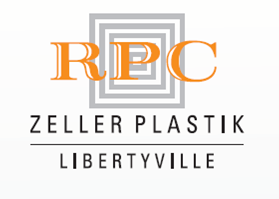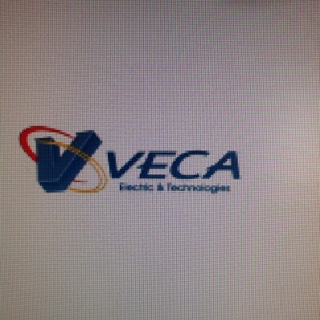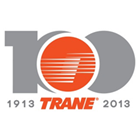Information
-
Site conducted
-
Document No.
-
Audit Title
-
Client / Site
-
Conducted on
-
Prepared by
-
Location
-
Personnel
OFFICE SAFETY AUDIT
GENERAL OFFICE SAFETY (OBO/OPS/SHEM)
-
1. Are aisles, doorways and corners free of obstructions to permit visibility and movement?<br>
-
2. Lighting in work areas and walkways adequate? <br>
-
3. Are chairs in safe condition and are caster, rungs and legs sturdy?<br>
-
4. Are all equipment and supplies in their proper places?<br>
-
5. Is there adequate walking and egress clearance?<br>a. 44” for corridors and stairways.<br>b. 36” for aisles.<br>c. 32” for doors.<br>
-
6. Are carts, dollies, etc. available for use in transporting heavy objects and boxes?<br>
-
7. Is housekeeping being adequately maintained?<br>
-
8. Are SDS available for office and housekeeping chemicals? <br>
-
9. Are SHEM posters prominently displayed?<br>
TRIP/FALL HAZARDS
-
1. Is the floor surface level and undamaged?<br>
-
2. The floor is not wet or slippery?<br>a. A warning sign is available in case of spills?<br>b. Cleanup supplies are readily available?<br>c. Non-slip mats are in entryways if needed?<br>
-
3. Are carpets secured to floor and free of worn or frayed seams?<br>
-
4. Are equipment or supplies stored so they don’t protrude into walkways.<br> <br>
-
5. Are cords or cables causing a trip hazard?<br>
-
6. Are permanent use cords covered by runners when crossing walkways?<br>
-
7. Is a step stool or ladder available to prevent the use of chairs for reaching high objects? Have employees been trained on the use of ladders?
ELECTRICAL
-
1. Are 10 mA GFCI outlets w/in 6 feet of a water source?<br>
-
2. Is access to electrical panels unobstructed (at least 36”)?<br>
-
3. Are outlets overloaded?<br>
-
4. Extension cords are not used in lieu of fixed wiring?<br>
-
5. A maximum of one power strip per electrical receptacle is used? (no daisy chains)
-
6. Electrical cords and plugs are in good condition? (i.e., not frayed, taped, spliced, or missing ground prongs)<br>
-
7. Electrical receptacles are in good working condition?<br> <br>
-
8. All electrical equipment in good working condition?<br>
-
9. Are electrical closets free of storage?<br>
-
10. Are personal appliances such as space heaters or coffee makers compliant with the buildings electrical circuit system?<br>
-
11. Are transformers on non-combustible surfaces?<br>
-
12. Are space heaters equipped with an overheat sensor?<br>
MAINTENANCE (outside and inside)
-
1. Are doors and locks in good working order?<br>
-
2. Are ceiling tiles intact, undamaged, and in place?<br>
-
3. Are there no signs of water damage or mold growth in the facility?<br>
-
4. Are all windows unbroken and free from any type of damage?<br>
-
5. Do ventilation supply diffusers and returns appear to be functional? Is the airflow adequate and in the proper direction (outward for the Consular area)?<br>
-
6. Are outside lights in good working order?<br>
-
7. Does the exterior of the building present no safety concerns?<br>
-
8. Is the parking lot area free of any safety concerns? (i.e. uneven pavement, broken sidewalks, traffic hazards)<br>
OFFICE ERGONOMICS
-
1. Are computer workstations equipped with keyboard trays?<br>
-
2. Do employees know how to adjust their chairs and keyboard trays? <br>
-
3. Do any chairs appear to be too large or too small for the users?<br>
-
4. Do any employees appear to be leaning forward, bending, or looking to the side to see the monitor or documents on the desktop?<br>
-
5. Are chairs, keyboard trays and monitors aligned?<br>
-
6. Have any employees reported discomfort from using their workstation?<br>
-
7. Have employees who reported discomfort received ergonomic assessments?<br>
BASIC LIFE SAFETY (OBO/OPS/FIR)
-
1. Are exit signs illuminated and visible?
-
2. Are corridors and egress ways free from obstructions and exits unlocked?<br>
-
3. Access to exit doesn’t require travel through high hazard area?<br>
-
4. Stairways are in good repair with handrails and non-slip tread?<br>
-
5. Stairways are not being used for storage?
-
6. Stairway steps are uniform in size?
-
7. Is the Emergency Evacuation Route & Action Plan posted?<br>
-
8. Are exit doors closed and not propped open?<br>
-
9. Is there no obvious damage to sprinklers? <br> <br>
-
10. Are fire extinguishers easily accessible, checked monthly, and operational?<br>
-
11. Are fire extinguishers mounted so that the travel distance from employees to any extinguisher is 75 feet or less?
-
I certified that all the information listed in the above report are correct and true.
-
Ariel Mariano, A/POSHO
-
Gus Kosmas, POSHO













